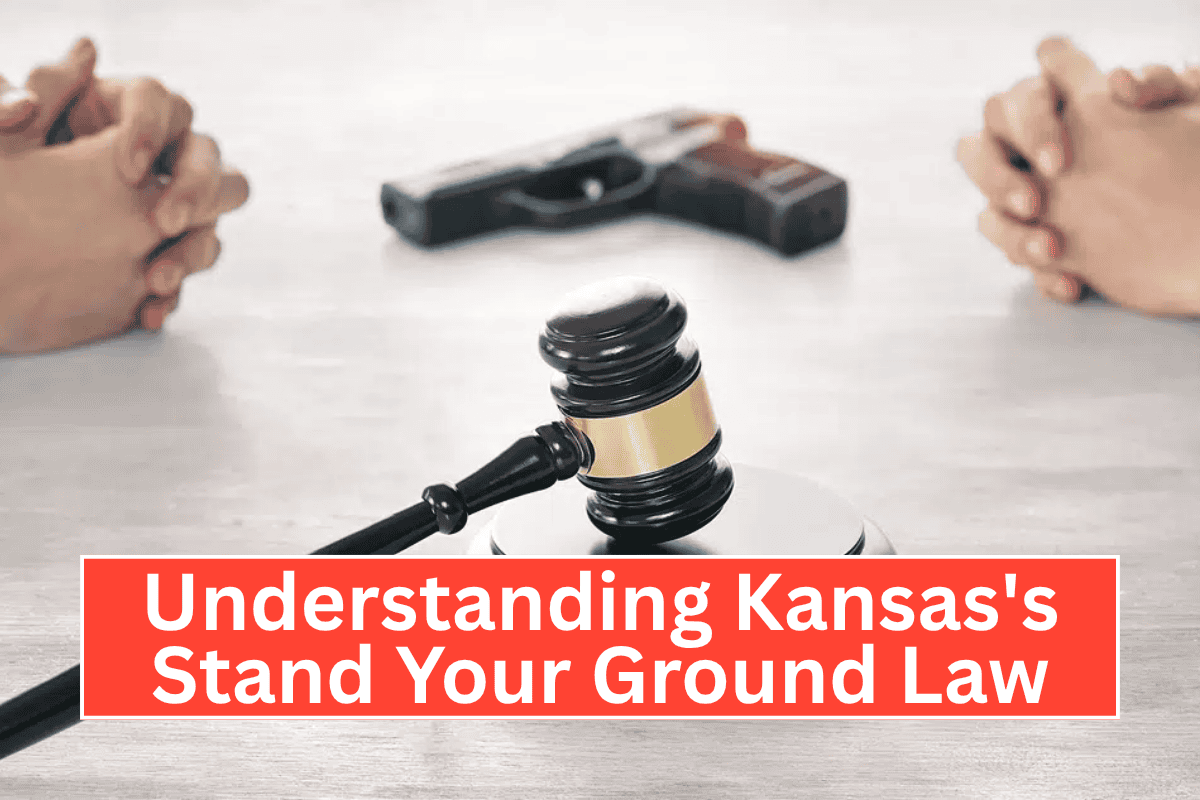Self-defense laws are an important aspect of criminal law in the United States, especially when it comes to protecting oneself and one’s property. One law that often sparks debate and interest is the “stand-your-ground” law.
It has been discussed frequently in the media and in legal circles, but what exactly does it mean? How does it apply in Kansas, and what should you know if you find yourself in a situation where self-defense is a consideration?
This article breaks down Kansas’s stand-your-ground law, providing insight from a criminal defense attorney in Wichita, Kansas.
What Are Stand-Your-Ground Laws?
To fully understand stand-your-ground laws, it helps to first understand the “castle doctrine,” a legal principle that gives individuals the right to use force to defend themselves when someone unlawfully enters their home.
Under the castle doctrine, there is no duty to retreat from an intruder; instead, individuals have the right to protect themselves using reasonable force, including deadly force, if necessary.
Stand-your-ground laws expand upon this principle, applying it not only within the home but also outside of it.
In states with stand-your-ground laws, individuals are not required to retreat when they feel threatened in places where they have a legal right to be (such as their car, workplace, or a public space).
The law allows them to defend themselves using force, including deadly force, if they reasonably believe it is necessary to prevent imminent harm.
Understanding Kansas Law
Kansas is one of the 35 states that have adopted stand-your-ground laws, and the state’s law is codified under Kan. Stat. Ann. §§ 21-5222. Kansas law allows individuals to use deadly force in self-defense situations without the obligation to retreat, provided they are in a location where they have a lawful right to be.
This includes their home, workplace, vehicle, or any other place they are legally allowed to be.
However, there are some critical conditions to be aware of:
- Reasonable Belief: The individual must reasonably believe that the use of force is necessary to prevent imminent death or great bodily harm to themselves or others. This perception of a threat must align with how a reasonable person would assess the situation.
- Lawful Presence: The law only applies if the individual is in a place where they have a legal right to be. If you are somewhere unlawfully (such as trespassing), you may lose the right to use stand-your-ground defense.
Immunity from Prosecution and Civil Action
Kansas law provides immunity from criminal prosecution and civil action for individuals who lawfully use force in self-defense. If someone is able to justify their actions under the self-defense provisions of Kansas’s stand-your-ground law, they are generally protected from legal repercussions.
However, this immunity is not absolute. Law enforcement officers are still allowed to investigate incidents and gather evidence to determine if the use of force was indeed justified.
Key Considerations for Self-Defense in Kansas
While Kansas provides legal protection for self-defense, several factors need to be taken into account when applying the law:
- Reasonable Belief: You must be able to prove that you perceived an imminent threat, and your belief must be reasonable under the circumstances. Kansas law has replaced the “reasonable person” standard with a “presumption of reasonableness” or “presumption of fear” standard. This means that the law presumes that your fear of harm was justified unless the prosecution can prove otherwise.
- Lawful Presence: The stand-your-ground law applies only when you are in a location where you have a right to be. If you are in an area where you are trespassing, you may lose the ability to claim self-defense.
- Use of Force: The force you use in self-defense must be proportional to the threat you face. If you use excessive force that goes beyond what is necessary to protect yourself, it can result in legal consequences. It’s important to note that self-defense doesn’t automatically mean using deadly force. If someone is in your home, for example, you still don’t have to use deadly force unless it’s warranted.
What to Do if You Are Accused of Using Force in Self-Defense
Even though Kansas law provides immunity for individuals who use force in self-defense, there may still be legal challenges, especially if the situation is unclear.
If you are accused of using excessive force or if there’s doubt about whether your actions were justified, you may still face criminal charges.
Jonathan W. McConnell, an experienced criminal defense attorney in Wichita, emphasizes the importance of having legal representation if you’ve used force in self-defense. “Self-defense is considered to be any reasonable use of force to defend yourself or others,” he explains.
“There are many gray areas, and each case will depend on the specifics of the situation.”
If you have injured someone during an act of self-defense, it’s crucial to seek legal help immediately. Being accused of using excessive force or acting outside the law can result in serious criminal charges, and it’s essential to have a skilled attorney by your side to navigate these complex cases.
Kansas’s stand-your-ground law provides a critical legal framework for individuals who find themselves in dangerous situations and need to defend themselves. The law removes the obligation to retreat, allowing people to stand their ground and use reasonable force to protect themselves or others.
However, understanding the key conditions of lawful presence, reasonable belief, and proportional force is essential to ensure that your actions are justified.
If you’ve been involved in an incident where you had to use force to defend yourself, it is highly recommended that you contact an experienced criminal defense attorney.
They can help assess the specifics of your case, ensure that your rights are protected, and guide you through the legal process.












